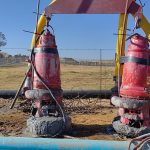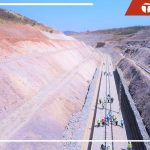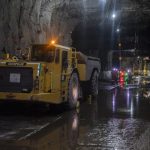Political accord signed in Washington sets the stage for security-led development in mineral-rich eastern Congo
While the landmark peace agreement signed on June 27, 2025, between the Democratic Republic of Congo (DRC) and Rwanda is not an economic deal in the traditional sense, its implications for regional growth and stability are potentially far-reaching.
During a government briefing in Kinshasa on July 3, senior officials underscored the deal’s transformative potential. “This is not a trade agreement with the United States, nor a bilateral commercial pact with Rwanda,” said Thérèse Kayikwamba, Minister of State for Foreign Affairs, speaking alongside Patrick Muyaya, Minister of Communication and Media. “It is fundamentally a political and security agreement.”
The accord includes several key commitments:
- A cessation of hostilities
- The withdrawal of foreign forces
- An end to support for rebel groups such as the M23
- The disarmament of armed militias
- Restoration of state authority in the east
These security measures, officials said, form the foundation for unlocking significant economic opportunity in the DRC’s long-volatile eastern region—home to some of the world’s richest deposits of cobalt, gold, coltan, and other critical minerals.
Security as a Development Catalyst
By stabilizing conflict-prone provinces, the peace deal aims to:
- Restore investor confidence
- Revive trade corridors linking the DRC to East Africa
- Expand the national tax base
- Curb illicit mining and encourage formal business activity
“The disarmament of armed groups—many of which are deeply embedded in illegal mineral networks—is essential to the formalization of the economy,” Kayikwamba noted. “Security is no longer just a political priority; it’s the starting point for development.”
If implemented effectively, the deal could catalyze:
- Local job creation in previously neglected areas
- Economic diversification
- Stronger regional integration across the Great Lakes region
A Path to Sustainable Growth?
Sector observers remain cautiously optimistic. “The potential is enormous,” said one mining industry analyst, speaking on condition of anonymity. “But everything hinges on whether the agreement is fully honored and whether peace proves durable.”
With billions in untapped mineral wealth and a strategic location bridging Central and East Africa, the DRC stands to benefit immensely from a new era of peace-driven economic strategy. The Washington-brokered deal may well be remembered not only as a diplomatic breakthrough—but as the first building block in a new economic future for the Congolese people.















